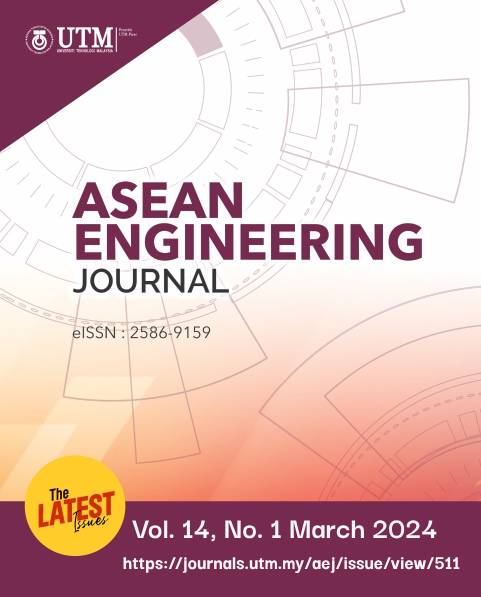AN EMPIRICAL STUDY TO IDENTIFY AND WEIGH THE RISK ATTRIBUTES THROUGH THE APPLICATION OF FMEA IN THE SOFTWARE INDUSTRY WITH FOCUS ON MSME AND SME IT FIRMS IN BENGALURU REGION
DOI:
https://doi.org/10.11113/aej.v14.20553Keywords:
Software quality, risk attribute, FMEA, MSME-IT firms, software failure modes, Risk Management in MSME/SME ITAbstract
Uncertain events can occur anytime during the lifecycle of software. An organization's readiness to deal with these events determines its ability to mitigate the potential losses. Risk management is an essential component of the lifecycle process and is given due diligence in a typical multi-tiered environment of the technological giants. On the contrary, small IT firms, especially the ones falling under the belt of SME and MSME sectors, often follow a reactive approach to risk management. Consequently, the probable losses incurred can be huge and sometimes even challenge the firm's existence in the market. Considering the above issue, we have put forward this paper after performing an empirical study targeting only the Bengaluru region's MSME/SME IT firms. The study was primarily conducted with two objectives (1) to identify the risk attributes and (2) to determine the effectiveness of FMEA techniques and weigh these attributes through the FMEA process. 43 failure modes were identified, which were ranked by a panel of 12 QA experts based on their past project experiences. The top ten failure modes identified by the process will be considered for future analysis and for determining the mitigation steps as a part of the risk management process, particularly for start-ups.
References
Aguilar, J., Zaldívar Colado, A., Tripp-Barba, C., Espinosa, R., Misra, S., and Zurita, C. E. 2018. A Survey About the Impact of Requirements Engineering Practice in Small-Sized Software Factories in Sinaloa, Mexico. Computational Science and its Applications – ICCSA 2018. Lecture Notes in Computer Science. 10963, Springer, Cham. DOI: https://doi.org/10.1007/978-3-319-95171-3_26
Carbone, T. A., and Tippett, D. D. 2004. Project Risk Management Using the Project Risk FMEA. Engineering Management Journal, 16(4): 28 35. DOI: https://doi.org/10.1080/10429247.2004.11415263
Solyman, A., Ibrahim, O. A., and Elhag, A. A. M. 2015. Project management and software quality control method for small and medium enterprises, 2015 International Conference on Computing, Control, Networking, Electronics and Embedded Systems Engineering (ICCNEEE)123 128. DOI: https://doi.org/10.1109/iccneee.2015.7381442
Farsi, J. Y., and Toghraee, M. R. 2014. Identification the main challenges of small and medium sized enterprises in exploiting of innovative opportunities (Case study: Iran SMEs). Journal of Global Entrepreneurship Research. 2(1): 4. DOI: https://doi.org/10.1186/2251-7316-2-4
Pai, A., S, H S., Soman, S., and Pareek, P. 2019. Analysis of Causes and Effects of Longer Lead Time in Software Process Using FMEA. Proceedings of the Second International Conference on Emerging Trends in Science & Technologies for Engineering Systems (ICETSE -2019) DOI: https://doi.org/10.2139/ssrn.3508574
Kupiainen, E., Mantyla, M. V., and Itkonen, J. 2015. Using metrics in Agile and Lean Software Development – A systematic literature review of industrial studies. Information & Software Technology. 62: 143–163 DOI: https://doi.org/10.1016/j.infsof.2015.02.005
Mishra, D., and Mishra, A. 2009. Software process improvement in SMEs: A comparative view. Computer Science and Information Systems. 6(1): 111–140. DOI: https://doi.org/10.2298/csis0901111m
Mukherjee, S. 2018. Challenges to Indian micro small scale and medium enterprises in the era of globalization. Journal of Global Entrepreneurship Research, 8, Article: e28. DOI: https://doi.org/10.1186/s40497-018-0115-5
Poth, A., Sasabe, S., Mas, A., and Mesquida, A. L. 2019. Lean and agile software process improvement in traditional and agile environments. Journal of Software, 31 Article: e1986. DOI: https://doi.org/10.1002/smr.1986
Soman, S., and Pareek, P. 2020. An exploratory analysis on challenges prevailing in small and medium IT firms. Journal of Physics, Conference Series. DOI: https://doi.org/10.1088/1742 6596/1427/1/012010
Soman, S., and Pareek, P. 2022. An empirical study to understand the effect of the awareness of Agile and Lean Software Development Life Cycle on factors to reduce the time taken for product development. International Journal of Health Sciences (IJHS). 6338–6344. DOI: https://doi.org/10.53730/ijhs.v6ns3.7405
Soman, S., Aditya Pai, H., Pareek, P., and Ramesh, B. N. 2019. Study on the factors that increase the lead times in small and medium level enterprises in IT sector. Journal of Advanced Research in Dynamical and Control Systems, 11(4 Special Issue): 1689-1698
Soman, S., Pareek, P., Dixit, S., Chethana, R.M., and Kotagi, V. 2021. Exploration Study to Study the Relationships Between Variables of Secure Development Lifecycle (SDL). Emerging Technologies in Data Mining and Information Security. Lecture Notes in Networks and Systems, 164. Springer, Singapore. DOI: https://doi.org/10.1007/978-981-15-9774-9_59
H, A. P., S, S. H., Soman, S., and Pareek, P. 2019. ROC Structure Analysis of Lean Software Development in SME’s Using Mathematical CHAID Model. Social Science Research Network. DOI: https://doi.org/10.2139/ssrn.3508577
Gandomani, T. J., and Nafchi, M.N. 2015. An empirically-developed framework for agile transition and adoption: A grounded theory approach. Journal of Systems and Software. 107: 204-219 DOI: https://doi.org/10.1016/j.jss.2015.06.006
Shi, H., Wang, X., Li, G., and Zhang, H. 2011. FMEA-Based Control Mechanism for Embedded Control Software. 011 International Conference of Information Technology, Computer Engineering and Management Sciences. 110 112. DOI: https://doi.org/10.1109/icm.2011.244
Pandey, V., Kadekodi, P., Bhatarkar, G. S., and Manohar, R. 2021. A Proposed Systematic Software Robustness Verification Framework (SRVF) for Enhancing Critical Software Module Robustness. In SAE Technical Paper Series. DOI: https://doi.org/10.4271/2021-26-0481
Velmourougan, S., Dhavachelvan, P., Baskaran, R., and Ravikumar, B. 2014. Software development Life cycle model to build software applications with usability. 2014 International Conference on Advances in Computing, Communications and Informatics (ICACCI), 271-276. DOI: https://doi.org/10.1109/icacci.2014.6968610
Dong, W., Wang, J., Zhao, C., Zhang, X., & Tian, J. 2008. Automating Software FMEA via Formal Analysis of Dependence Relations. 32nd Annual IEEE International Computer Software and Applications Conference. 490-491. DOI: https://doi.org/10.1109/compsac.2008.71
Ozarin, N. W., & Siracusa, M. (2003). A process for failure modes and effects analysis of computer software. Annual Reliability and Maintainability Symposium. 365-370. DOI: https://doi.org/10.1109/rams.2003.1182016
Neufelder, A. M. (2023). Software FMEA and the common Defect Enumeration. 2023 Annual Reliability and Maintainability Symposium. 1-6. DOI: 10.1109/RAMS51473.2023.10088208
Hanna, A., Bengstsson, K., Larsson, S., and Gotvall, P-L (2023). Risk assessment for Intelligent and Collaborative Automation System by Combining FMEA and STPA. DOI: http://dx.doi.org/10.2139/ssrn.4530824
















